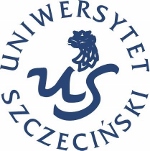Studies and researches
2/2025
Blanket Restrictive Measures in the Czech Republic During the COVID-19 Pandemic – A Trade-Off Concept Application
In
early 2020, many widespread restrictive measures were introduced worldwide in
response to the COVID-19 pandemic. These measures entailed high socio-economic
costs, which have been largely overlooked due to political motivations and the
difficulty of their measurement. One of them is the negative impact of
widespread restrictive measures on life expectancy due to the limited school
attendance and the negative impact of restrictions on the population's health
status. In this paper, we use our own structural model based on the trade-off
analysis method. The research compares the lost years of life in the situation
of the existence of restrictive measures and, on the contrary, the situation of
a complete absence of these measures. We use data from the Czech Republic
between February 2020 and October 2021. Our article concludes that the number
of lost years of life is many times higher when widespread restrictive measures
are implemented in all considered scenarios. These findings should be
considered when making further decisions on applying widespread restrictive
measures in the Czech Republic.
COVID-19, Czech Republic, government responses, nationwide restrictive measures, trade-off analysis
H12, I18, J10
H12, I18, J10














